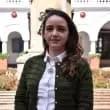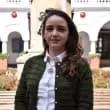Learn to develop impactful research products within the university-industry-community framework for open science innovation.
Learn to develop impactful research products within the university-industry-community framework for open science innovation.
This course provides the foundation for understanding research products within the framework of university connections to business, government, community, and environment—key scenarios in open science and innovation. Structured in four components, the curriculum begins with theoretical concepts for those interested in applied research and solving concrete problems in communities, businesses, and organizations. Students will explore fundamental questions like "What is scientific knowledge transfer?" and "Why is it important to generate research with impact across different sectors of society?" The second component focuses on identifying trends and innovations in applied research projects, recognizing social or commercial problems that can be addressed through research results. The third section transitions to practical implementation, teaching students how to structure products or services that improve quality of life and benefit society through their transfer to communities, businesses, or institutions with community or commercial applications. The final component presents a case study for reflection on research results transfer within the open science framework. Throughout the course, participants will develop skills in innovation ecosystem frameworks, trend research, need identification, solution building, and product/service structuring, all oriented toward the new challenges that open science brings to society.
Instructors:

Juan Sebastián Valbuena Silva

Catalina María Robles Quintana
Spanish
Spanish
What you'll learn
Recognize the reference framework of innovation ecosystems and research transfer processes
Utilize tools for trend spotting, problem identification, and solution development in research applications
Master the foundational elements for structuring products or services based on research findings
Understand models for measuring product and service impact in different contexts
Develop minimum viable products from research insights
Apply open science principles to knowledge transfer initiatives
Skills you'll gain
This course includes:
PreRecorded video
Graded assessments
Access on Mobile, Tablet, Desktop
Limited Access access
Shareable certificate
Closed caption
Get a Completion Certificate
Share your certificate with prospective employers and your professional network on LinkedIn.
Created by
Provided by

Top companies offer this course to their employees
Top companies provide this course to enhance their employees' skills, ensuring they excel in handling complex projects and drive organizational success.





There are 3 modules in this course
This course bridges the gap between academic research and practical application within the open science framework. The curriculum is structured into four interconnected components that guide learners from theoretical foundations to practical implementation. The first module introduces fundamental concepts of research transfer in the context of open science, exploring the role of universities, the nature of research, and the importance of connecting academic knowledge with societal needs. The second module equips students with strategies and tools for identifying needs and potential solutions, covering innovation environments, trend research methodologies, and various channels and typologies for knowledge transfer. The third module focuses on the practical development of Minimum Viable Products (MVPs), teaching students how to structure products or services, implement prototyping strategies, and conduct research with measurable impact. This section also covers measurement models to evaluate the effectiveness of knowledge transfer initiatives. The final component presents an applied case study that allows students to reflect on and integrate the concepts learned throughout the course. By completing this training, participants will gain a comprehensive understanding of the research transfer process and develop practical skills to transform research findings into solutions that address real-world problems, all within the expanding framework of open science principles.
1. Conocimientos básicos de transferencia de investigación
Module 1
2. Estrategias y herramientas para la identificación de necesidades y alternativas
Module 2
3. Estructuración de Productos Mínimos Viables
Module 3
Fee Structure
Payment options
Financial Aid
Instructors

Juan Sebastián Valbuena Silva
1 Course
Sociologist and Expert in Public Policy and Research Transfer at Universidad del Rosario
Juan Sebastián Valbuena Silva is a sociologist with a Master’s in Economics of Public Policy from Universidad del Rosario. He has extensive experience in market consulting and public policy innovation and development, with a particular focus on the management of geographic and statistical data. As a university lecturer and researcher, Valbuena Silva has contributed to academic and applied research, and currently serves as a Professional in Research Results Transfer at the Directorate of Research and Innovation at Universidad del Rosario. His work emphasizes the application of research for societal impact, including open science and the transfer of scientific knowledge to the public, private, and community sectors.

Catalina María Robles Quintana
1 Course
Expert in Food Engineering and Innovation Project Management at Universidad del Rosario
Catalina María Robles Quintana is a Food Engineer with a Master’s in Process Design and Management, currently serving as a Professional in Research Results Transfer at the Directorate of Research and Innovation, Universidad del Rosario. She has extensive experience in planning, controlling, and evaluating R&D&I projects, as well as in research, technology transfer, intellectual property, and the technical and administrative management of technological and social innovation projects. Catalina is recognized for her decision-making abilities, teamwork, creativity, organizational skills, and leadership, contributing to the advancement of innovation initiatives within the university community.
Testimonials
Testimonials and success stories are a testament to the quality of this program and its impact on your career and learning journey. Be the first to help others make an informed decision by sharing your review of the course.
Frequently asked questions
Below are some of the most commonly asked questions about this course. We aim to provide clear and concise answers to help you better understand the course content, structure, and any other relevant information. If you have any additional questions or if your question is not listed here, please don't hesitate to reach out to our support team for further assistance.

